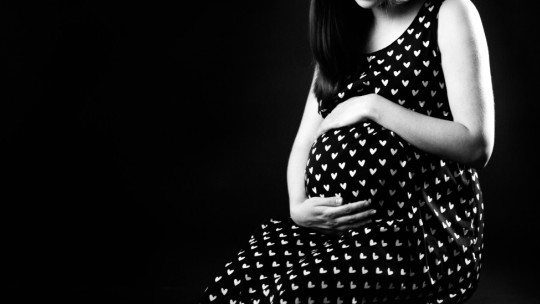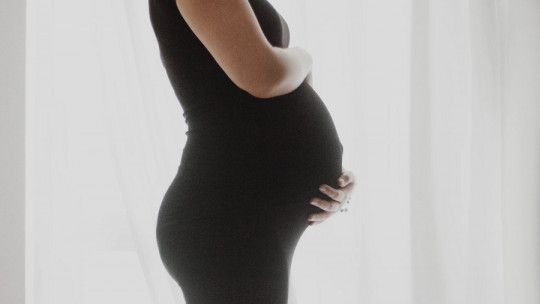
It is common to hear that motherhood is one of the most wonderful things that can happen to a woman. We have all grown up with phrases that have given us a conception of idyllic motherhood. Now, although it is true that this new role brings with it extremely positive aspects, we cannot forget that two out of ten women have mental health problems since they decide to become mothers, during pregnancy or in the first year of the baby’s life.
Very few people talk about the tsunami of emotions, experiences and new experiences that inevitably occur when a woman decides to take this big step in her life. Suddenly, they find themselves involved in a rush of revolutionized hormones, a baby that demands a lot of attention, the family of origin, the partner, postpartum recovery, a lot of sleep, and feelings of guilt that flood the mind and appear more strongly after motherhood. .
If you are experiencing sadness, anxiety, or simply feeling overwhelmed since your child was born, it is important to clarify that you are not alone. In fact, according to the World Health Organization (WHO), the most disabling health problem during the perinatal period is depression. More specifically, it is estimated that between 10% and 13% of mothers develop in industrialized countries and double that in developing countries. However, it is shocking that around 75% are not diagnosed nor do they receive adequate treatment. Due to the importance of the topic in question, in today’s article, we will analyze whether motherhood can cause depression.
Baby blues vs. postpartum depression
Being overwhelmed by feelings of sadness and anxiety in the first weeks after the birth of a child is completely normal. Ultimately, we must understand and respect that we are not machines programmed to be mothers and by wanting to give our best, but at the same time, not having an instruction manual to do it properly, generates harmful feelings in us. However, It is important to know and differentiate the terms baby blues and postpartum depression, in order to have a more optimal vision of the situation.
On the one hand, baby blues syndrome is an emotional disturbance that involves feelings of sadness, irritability, frequent urges to cry, anguish and mood changes. It appears in the first week of childbirth and can last around 15 days until it disappears. Coinciding more or less when the mother manages to assimilate her new vital state and establish a new routine with the newborn baby.
On the other hand, postpartum depression is a more serious illness that results in anxiety, altered appetite and even a feeling of rejection towards the baby, something that can even be dangerous, which is why it requires specialized treatment to be cured.
In this regard, it is crucial to know how to differentiate them well in order to act in one way or another. To do this, below we present the main distinctions:
The gravity
Postpartum depression is a serious mood disorder, while baby blues is a mild disturbance. It can be stated that the intensity of the symptoms is greater in postpartum depression and adds the issue of anxiety, appetite disturbances and negative feelings towards the baby, which leads to the inability to take care of oneself or the baby.
The duration
On the one hand, the baby blues appear during the first week after childbirth and do not last more than 15 days. Besides, Postpartum depression can arise at any time during motherhood throughout the first year and extend up to another year in time.
Behavior varies. That is, if a mother feels sadness or weakness but is functional, that is, she can perform day-to-day tasks, we talk about baby blues. However, if the symptoms she presents immobilize or block her from continuing with her daily life, we would be talking about the beginning of postpartum depression.
Factors that influence when developing depression in motherhood
Pregnancy and, above all, the postpartum period are periods of extreme vulnerability for women in which it is assumed that they must be well because they must be happy. In many cases, this does not feel that way, and the woman, not feeling understood, is not able to verbalize that she is not feeling well. Now, what factors influence the development of depression in motherhood? Various factors can contribute to this.
For starters, hormones play an important role. It must be taken into account that during the gestation period, the levels of progesterone and estrogen are very high and, after delivery, within 24 hours they decrease significantly, which affects the levels of brain neurotransmitters and can cause a disorder. It is true that research indicates that this does not occur in all women, since The genetics of each person have a great weight when it comes to suffering from depression.
To this, social factors are added. If the mother is alone, if her partner helps her or not, if her family of origin supports her, if they suffer from economic and emotional problems, anxiety, stress and expectations about motherhood. After all, as we mentioned at the beginning, our society sees motherhood in rosy colors. It seems that everything revolves around what clothes to buy for the baby, comments about the newborn sleeping all night, that the couple’s relationship should stay the same, and that generally, life doesn’t change that much.
Prioritize mental health
First of all, it is extremely important to prioritize mental health. After all, Mental health is essential for the growth and development of oneself and of course, that of the baby. It must be taken into account that a mother ends up generating an affective disorder that causes her a lot of suffering and can even put her environment and her life at risk. A mother with depression will not be able to establish an adequate emotional bond with the child and according to psychology experts, establishing an emotional relationship between mother and child is crucial for the correct neurodevelopment of the newborn and subsequent interpersonal relationships in adult life.
Finally, we want to close the article by highlighting the importance of asking for professional help if you have felt identified throughout this writing. It must be clear that parenting and motherhood are complex, but it is not about burying your needs while meeting the needs of others. It’s a constant flow of give and take. Therefore, if you feel that it is an issue that is beyond your reach, we want to emphasize that needing help does not make you a weak person, quite the opposite. It is a profound act of strength and self-love.








